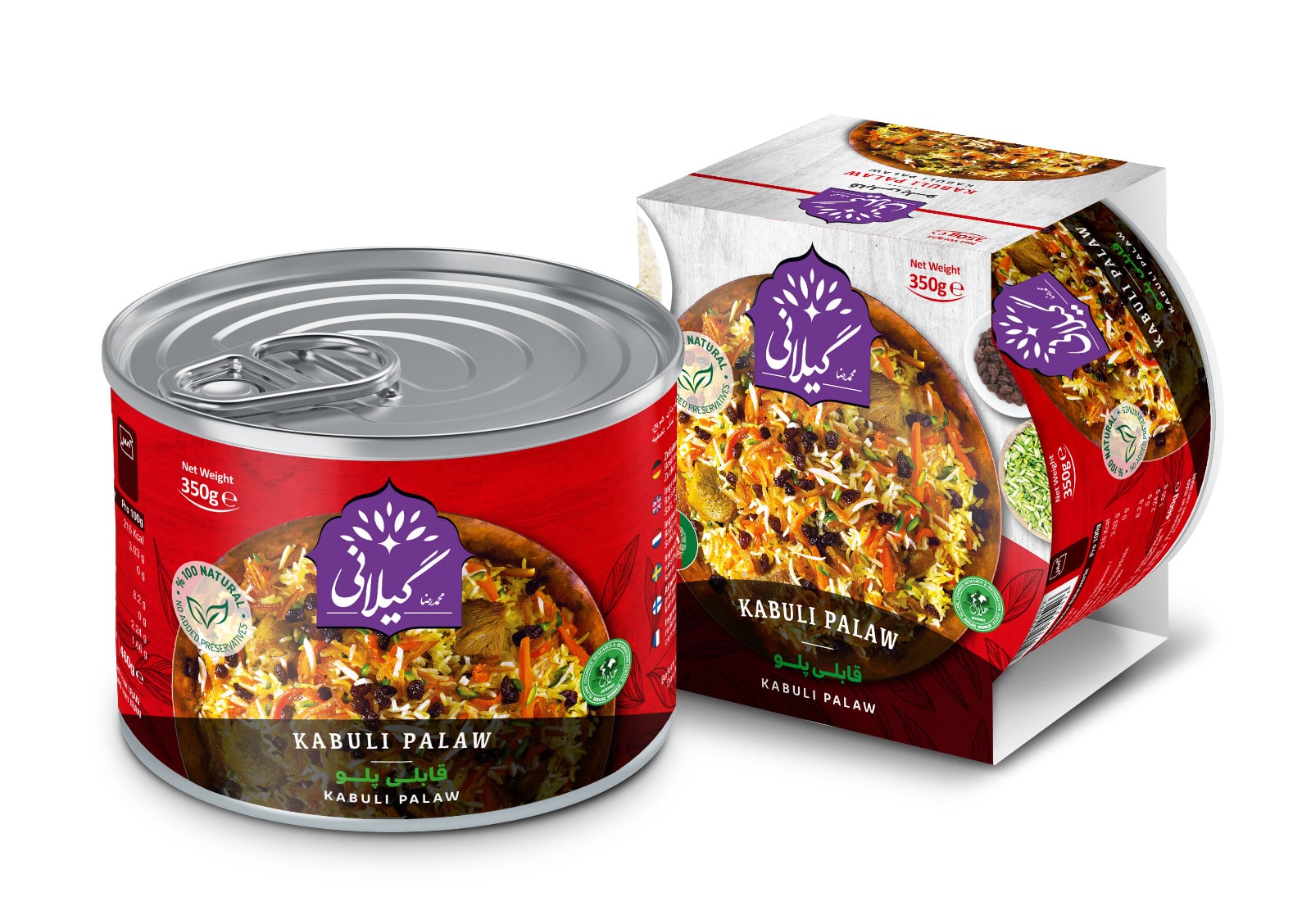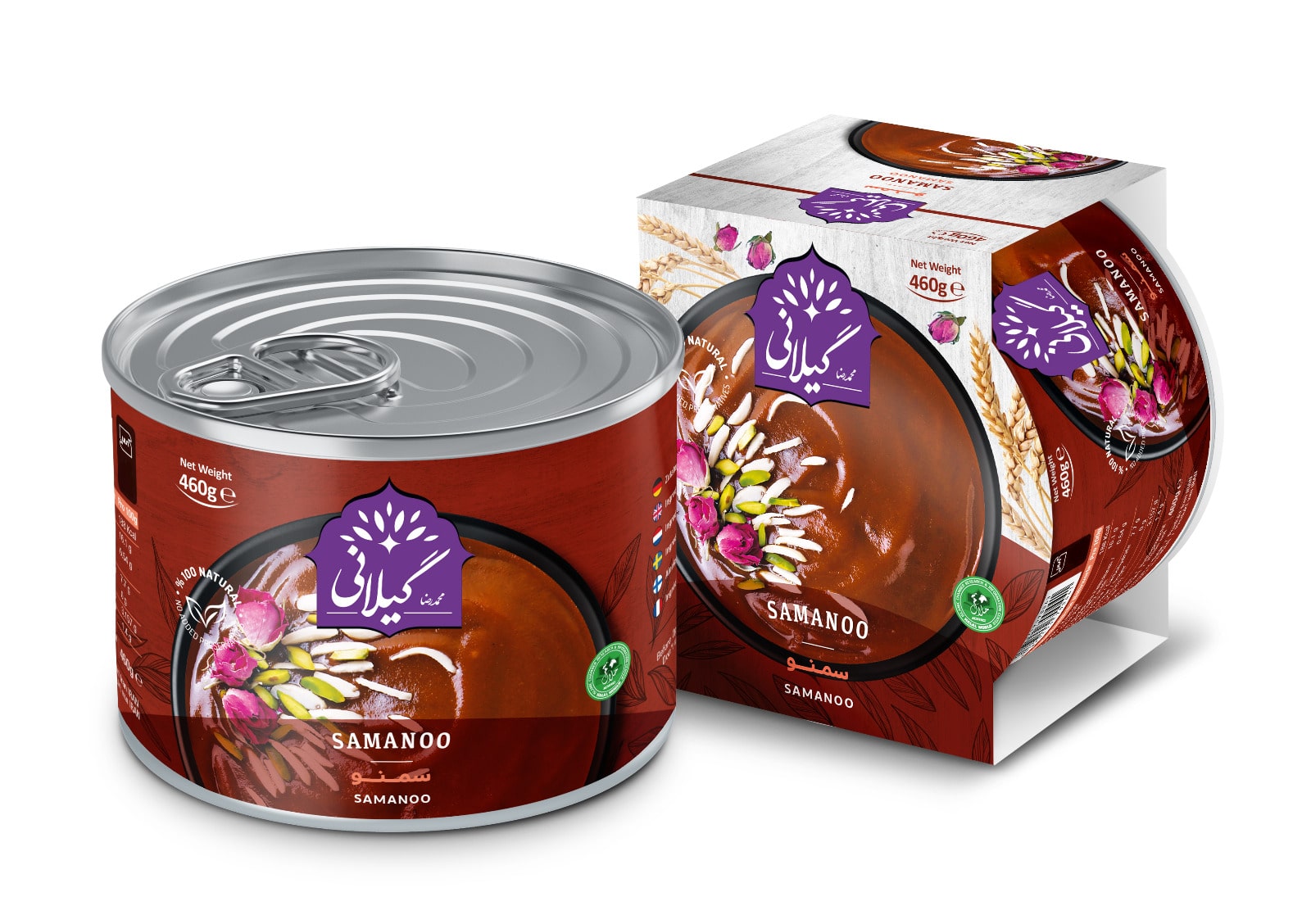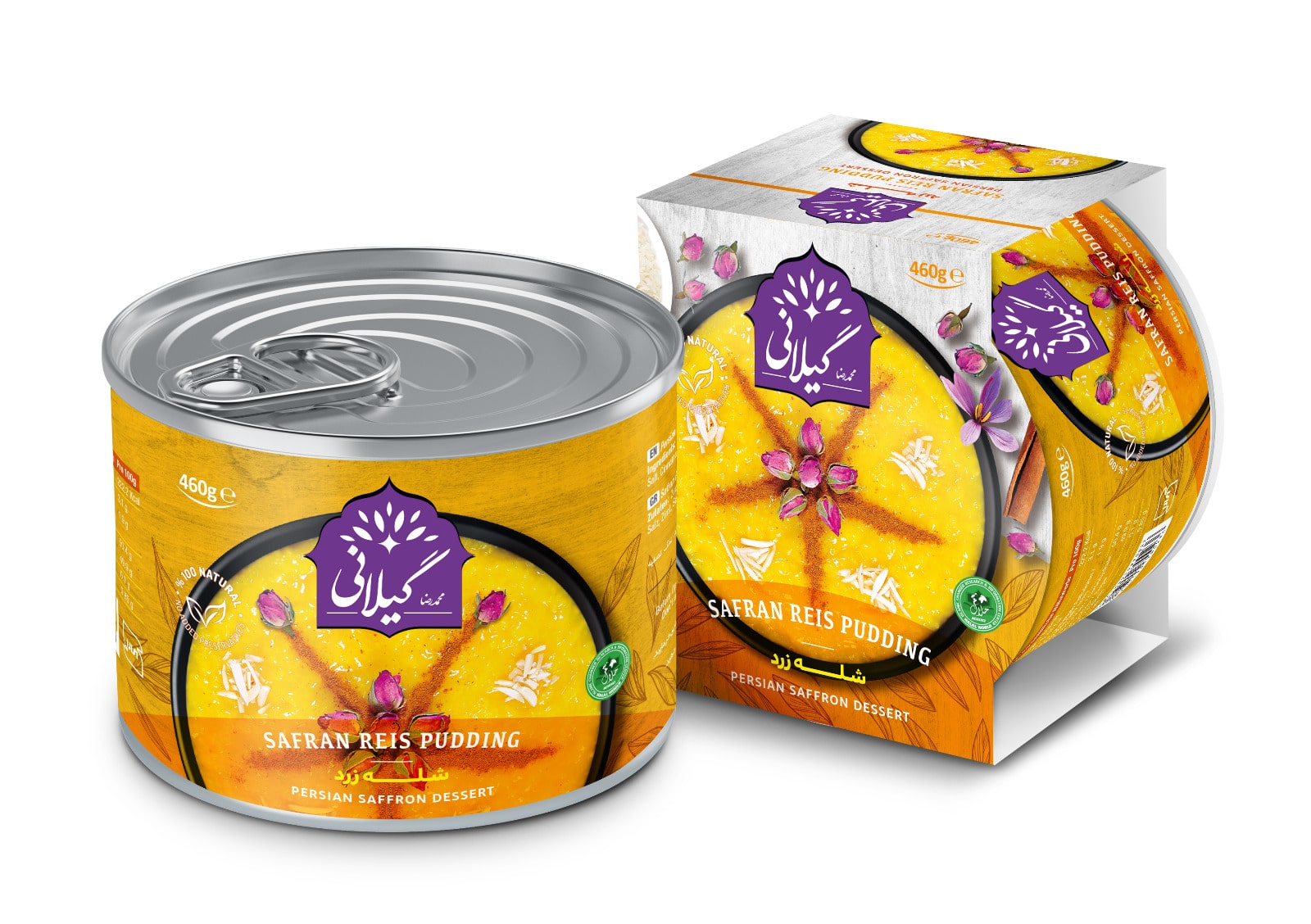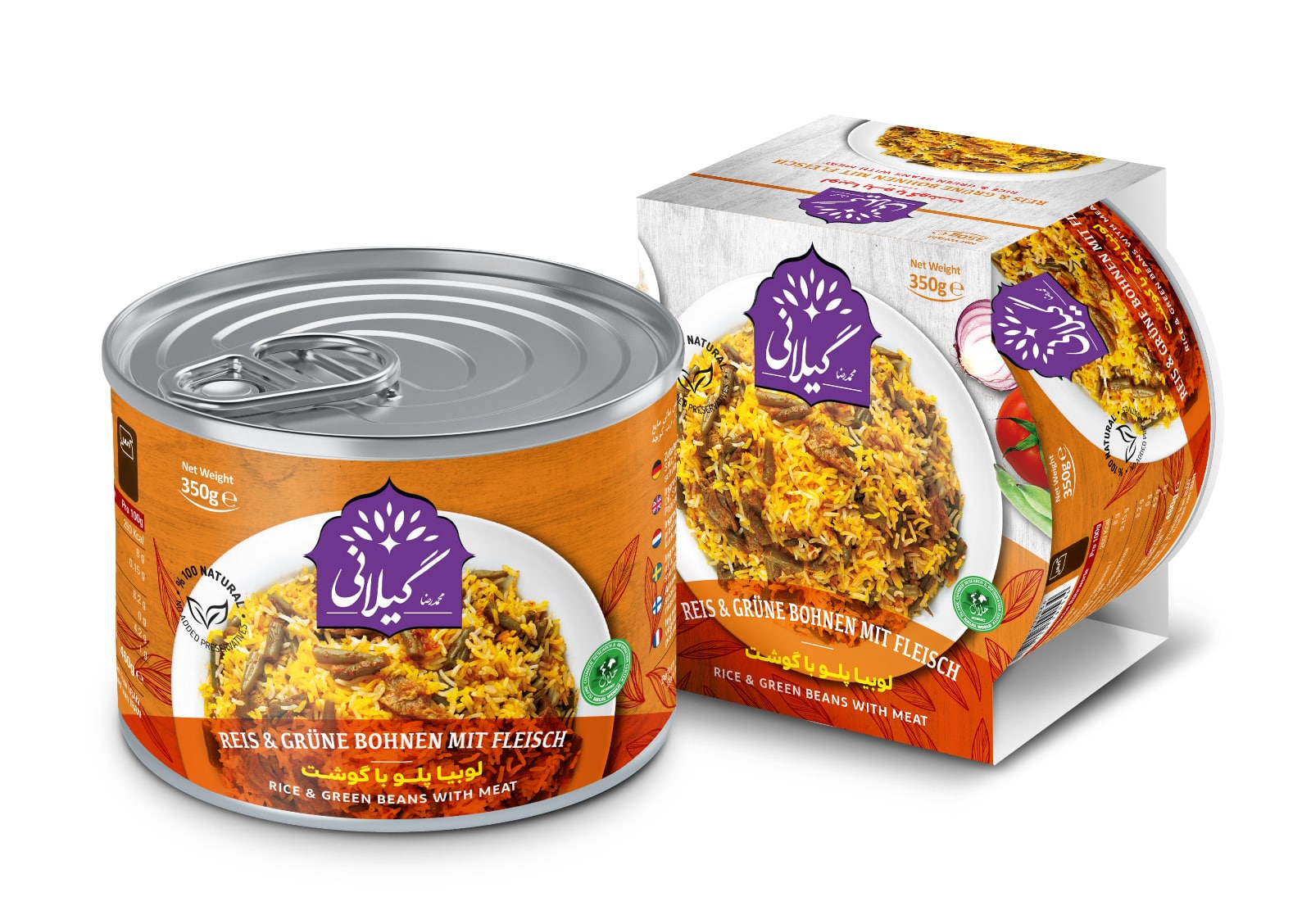These plants are particularly known for the cooling sensation they impart. They can be added to foods in both fresh and dried forms.
Mint is a popular ingredient in several foods and beverages, ranging from teas and alcoholic drinks to sauces, salads and desserts.
While eating the plant offers some health benefits, research shows that several of mint’s health benefits come from applying it to the skin, inhaling its aroma or taking it as a capsule.
This article takes a closer look at eight science-based health benefits of mint.
To benefit from the unique properties of mint, you can use Gilani ready meals, including Gilani Fried Parsley Mint and Gilani Celery Stew Preserves.
1. Rich in Nutrients
While not typically consumed in large quantities, mint does contain a fair amount of nutrients.
In fact, just under 1/3 cup or half an ounce (14 grams) of spearmint contains :
In fact, just under 1/3 cup or half an ounce (14 grams) of spearmint contains :
- Calories: 6
- Fiber: 1 gram
- Vitamin A: 12% of the RDI
- Iron: 9% of the RDI
- Manganese: 8% of the RDI
- Folate: 4% of the RDI
Because of its dynamic flavor, mint is often added to recipes in small amounts, so consuming even 1/3 cup may be difficult. However, it’s possible you may come close to this amount in some salad recipes that include mint among the other ingredients.
Mint is a particularly good source of vitamin A, a fat-soluble vitamin that is critical for eye health and night vision .
It is also a potent source of antioxidants, especially when compared to other herbs and spices. Antioxidants help protect your body from oxidative stress, a type of damage to cells caused by free radicals .
Mint is a particularly good source of vitamin A, a fat-soluble vitamin that is critical for eye health and night vision .
It is also a potent source of antioxidants, especially when compared to other herbs and spices. Antioxidants help protect your body from oxidative stress, a type of damage to cells caused by free radicals .
2. May Improve Irritable Bowel Syndrome
Irritable bowel syndrome (IBS) is a common digestive tract disorder. It is characterized by digestive symptoms like stomach pain, gas, bloating and changes in bowel habits.
Although treatment for IBS often includes dietary changes and taking medications, research shows that taking peppermint oil as an herbal remedy might also be helpful.
Peppermint oil contains a compound called menthol, which is thought to help alleviate IBS symptoms through its relaxing effects on the muscles of the digestive tract .
A review of nine studies including over 700 patients with IBS found that taking peppermint oil capsules improved IBS symptoms significantly more than placebo capsules .
One study found that 75% of patients who took peppermint oil for four weeks showed improvements in IBS symptoms, compared to 38% of the patients in the placebo group .
Notably, nearly all research showing IBS symptom relief used oil capsules rather than raw mint leaves.
Although treatment for IBS often includes dietary changes and taking medications, research shows that taking peppermint oil as an herbal remedy might also be helpful.
Peppermint oil contains a compound called menthol, which is thought to help alleviate IBS symptoms through its relaxing effects on the muscles of the digestive tract .
A review of nine studies including over 700 patients with IBS found that taking peppermint oil capsules improved IBS symptoms significantly more than placebo capsules .
One study found that 75% of patients who took peppermint oil for four weeks showed improvements in IBS symptoms, compared to 38% of the patients in the placebo group .
Notably, nearly all research showing IBS symptom relief used oil capsules rather than raw mint leaves.
3. May Help Relieve Indigestion
Mint may also be effective at relieving other digestive problems such as upset stomach and indigestion.
Indigestion may occur when food sits in the stomach for too long before passing into the rest of the digestive tract.
Multiple studies have shown that food passes through the stomach quicker when people take peppermint oil with meals, which could relieve symptoms from this type of indigestion .
A clinical study in people with indigestion showed that a combination of peppermint oil and caraway oil taken in capsules had effects similar to medications used to treat indigestion. This helped improve stomach pain and other digestive symptoms .
Similar to IBS, studies highlighting mint’s ability to relieve indigestion used peppermint oil rather than fresh or dried leaves.
Indigestion may occur when food sits in the stomach for too long before passing into the rest of the digestive tract.
Multiple studies have shown that food passes through the stomach quicker when people take peppermint oil with meals, which could relieve symptoms from this type of indigestion .
A clinical study in people with indigestion showed that a combination of peppermint oil and caraway oil taken in capsules had effects similar to medications used to treat indigestion. This helped improve stomach pain and other digestive symptoms .
Similar to IBS, studies highlighting mint’s ability to relieve indigestion used peppermint oil rather than fresh or dried leaves.
4. Could Improve Brain Function
In addition to ingesting mint, there are claims that inhaling the aroma of essential oils from the plant could provide health benefits, including improved brain function.
One study including 144 young adults demonstrated that smelling the aroma of peppermint oil for five minutes prior to testing produced significant improvements in memory .
Another study found that smelling these oils while driving increased alertness and decreased levels of frustration, anxiety and fatigue .
However, not all studies agree that peppermint oil could benefit brain function. One study found that although the aroma of the oil was invigorating and led to less fatigue, it had no effect on brain function .
More research is needed to help understand how it may work and investigate whether peppermint does, in fact, improve brain function.
One study including 144 young adults demonstrated that smelling the aroma of peppermint oil for five minutes prior to testing produced significant improvements in memory .
Another study found that smelling these oils while driving increased alertness and decreased levels of frustration, anxiety and fatigue .
However, not all studies agree that peppermint oil could benefit brain function. One study found that although the aroma of the oil was invigorating and led to less fatigue, it had no effect on brain function .
More research is needed to help understand how it may work and investigate whether peppermint does, in fact, improve brain function.
5. May Decrease Breastfeeding Pain
Breastfeeding mothers commonly experience sore and cracked nipples, which can make breastfeeding painful and difficult.
Studies have shown that applying mint to the skin can help relieve pain associated with breastfeeding.
In these studies, breastfeeding mothers applied various forms of mint to the area around the nipple after each feeding. Typically, they used an essential oil on its own or mixed with gel or water.
One study showed that applying peppermint water after breastfeeding was more effective than applying expressed breast milk in preventing nipple and areola cracks, which resulted in less nipple pain .
Another study similarly showed that only 3.8% of mothers who applied a peppermint gel experienced nipple cracks, compared to 6.9% of those who used lanolin and 22.6% of those who used a placebo .
Furthermore, an additional study showed that both the pain and severity of nipple cracks decreased in mothers who applied menthol essential oil after each feeding .
Studies have shown that applying mint to the skin can help relieve pain associated with breastfeeding.
In these studies, breastfeeding mothers applied various forms of mint to the area around the nipple after each feeding. Typically, they used an essential oil on its own or mixed with gel or water.
One study showed that applying peppermint water after breastfeeding was more effective than applying expressed breast milk in preventing nipple and areola cracks, which resulted in less nipple pain .
Another study similarly showed that only 3.8% of mothers who applied a peppermint gel experienced nipple cracks, compared to 6.9% of those who used lanolin and 22.6% of those who used a placebo .
Furthermore, an additional study showed that both the pain and severity of nipple cracks decreased in mothers who applied menthol essential oil after each feeding .
6. Subjectively Improves Cold Symptoms
Many over-the-counter cold and flu treatments contain menthol, a primary compound in peppermint oil.
Many people believe menthol is an effective nasal decongestant that can get rid of congestion and improve airflow and breathing.
However, multiple studies show that menthol has no decongestant function. That being said, research also shows that menthol can subjectively improve nasal breathing.
This means that although menthol doesn’t work as a decongestant, it can make people feel like they are breathing through their nose easier.
This is likely to provide at least some relief to those affected by a cold or the flu.
Many people believe menthol is an effective nasal decongestant that can get rid of congestion and improve airflow and breathing.
However, multiple studies show that menthol has no decongestant function. That being said, research also shows that menthol can subjectively improve nasal breathing.
This means that although menthol doesn’t work as a decongestant, it can make people feel like they are breathing through their nose easier.
This is likely to provide at least some relief to those affected by a cold or the flu.
7. May Mask Bad Breath
Mint-flavored chewing gum and breath mints are some of the first things people reach for when trying to prevent or get rid of bad breath.
Experts agree that most of these products can mask foul-smelling breath for a few hours. However, they only cover up bad breath and don’t reduce the bacteria or other compounds causing bad breath in the first place.
On the other hand, drinking peppermint tea and chewing on fresh leaves may be able to both mask bad breath and kill bacteria, as test-tube studies have highlighted the antibacterial effects of peppermint oil .
Experts agree that most of these products can mask foul-smelling breath for a few hours. However, they only cover up bad breath and don’t reduce the bacteria or other compounds causing bad breath in the first place.
On the other hand, drinking peppermint tea and chewing on fresh leaves may be able to both mask bad breath and kill bacteria, as test-tube studies have highlighted the antibacterial effects of peppermint oil .
8. Easy to Add to Your Diet
You can easily add mint to green salads, desserts, smoothies and even water. Peppermint tea is another popular way to incorporate it into your diet.
However, many of the studies showing the health benefits of mint didn’t involve eating the leaves with food. Instead, mint was taken as a capsule, applied to the skin or inhaled via aromatherapy.
When using mint for health purposes, it is important to evaluate what you are looking to achieve and how the plant was used in the research for that particular purpose.
The list below should help summarize some of the research discussed above.
However, many of the studies showing the health benefits of mint didn’t involve eating the leaves with food. Instead, mint was taken as a capsule, applied to the skin or inhaled via aromatherapy.
When using mint for health purposes, it is important to evaluate what you are looking to achieve and how the plant was used in the research for that particular purpose.
The list below should help summarize some of the research discussed above.
- Eating fresh or dried leaves: Used to treat bad breath.
- Inhaling essential oils: May improve brain function and cold symptoms.
- Applying it to the skin: Used to reduce nipple pain from breastfeeding.
- Taking capsules with food: May help treat IBS and indigestion.
The Bottom Line
Mint makes a delicious and healthy addition to many foods and beverages.
Although mint is easy to add to many dishes, research demonstrating its health benefits has mainly used mint taken in capsules, applied to the skin or inhaled via aromatherapy.
Mint’s health benefits range from improving brain function and digestive symptoms to relieving breastfeeding pain, cold symptoms and even bad breath.
You really can’t go wrong adding some mint to your diet.
https://www.healthline.com/
Although mint is easy to add to many dishes, research demonstrating its health benefits has mainly used mint taken in capsules, applied to the skin or inhaled via aromatherapy.
Mint’s health benefits range from improving brain function and digestive symptoms to relieving breastfeeding pain, cold symptoms and even bad breath.
You really can’t go wrong adding some mint to your diet.
https://www.healthline.com/
Suggested Products
Beyond the borders, the taste of the food of the nations, with Gilani Kabuli Rice with Meat
5 %
203,000
192,850 Toman
The blessing of the earth, the same delicious and original Samanoo! try it
5 %
12,700
12,065 Toman
Prepared from Sargol Ala saffron, almond slices, Akbar cardamom and the best raw materials
102,500 Toman
Order





